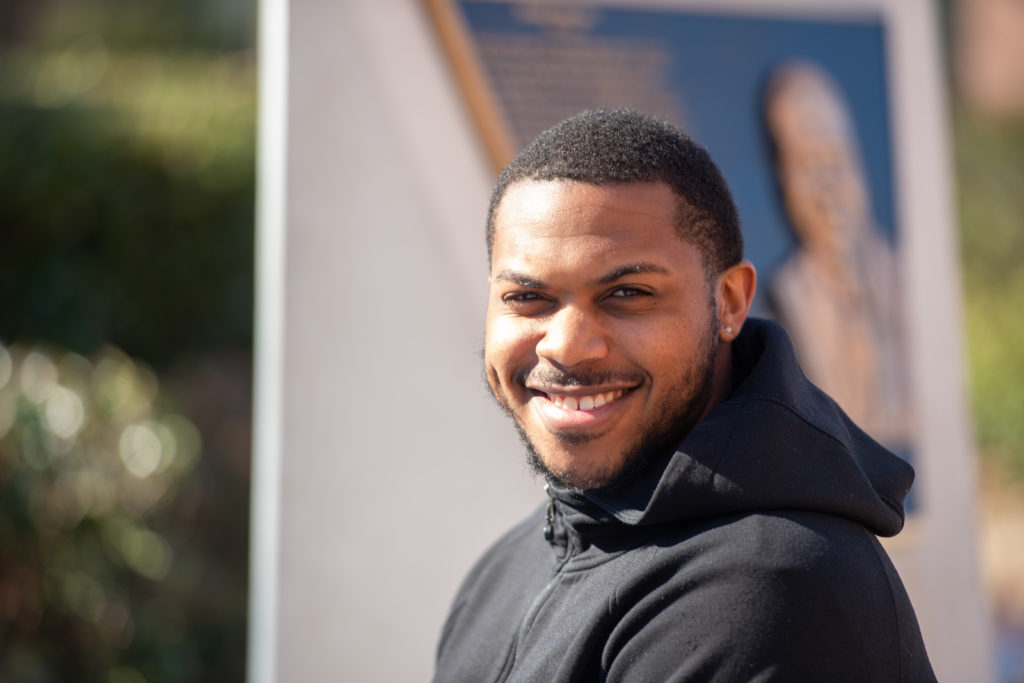
John Bradshaw III is a senior business management major from Sachse, Texas.
Why did you choose to attend Harding?
I chose to attend Harding because I had several friends here. I started out at Southwestern Christian College — the only church of Christ historically Black college, located in Terrell, Texas — but after two years there, I really wanted to come to Harding and do school with my friends.
Who are your African American heroes and what traits do they have in common?
My heroes include Claud Anderson, an author who is probably lesser known, and also Malcolm X. The reason I like both of those men is because they had a plan to actually resolve some of the struggles that African Americans faced. As much as we faced an integration crisis, there was also a financial struggle. They pointed out that no matter how eloquently you spoke, you still lacked a certain reverence if you didn’t have the wealth to back it up.
As we celebrate Black History Month, what are steps we can all take to further cultivate change and progress toward equality?
I think it’s important to get away from subjective truth and move to objective truth. I think there are so many issues from a subjective point of view that people don’t want to talk about because it brings to light ideas and thoughts that aren’t always the best. Sometimes you can’t get to the point of really understanding until you look at the issues from an objective point of view.
How would you like to see the efforts and attention of Black History Month carried throughout the year?
The only time that Black history is really talked about is February, and the only people who really seem to be talked about are Martin Luther King Jr., and the typical individuals that we are all familiar with who helped African Americans get to the point where we are now. But there are so many others who were influential and worked behind the scenes that we don’t know about. For instance, Claud Anderson is continuing to do so much work now. He worked with one of the past presidential administrations and learned a lot about policy creation and the mindset of people in positions of power in order to create change.
What traits that Jesus embodied do you think are crucial to achieving the goal of equality? Why ?
I would say we need to understand our “why.” Sometimes, especially in my generation, we get so caught up in what things look like. It can become about me going on a mission trip, or me doing this or that to help people. It can be a good show, but if we don’t ask ourselves the question “Why?” it falls flat. Jesus had to do the same thing when he was in the garden. He wanted the cup to pass from him because in his human nature, he didn’t want to do what was being asked of him. But he also understood the reason why he was there, and, therefore, it was “not my will, but thy will be done.” Understanding the “why” is important because we aren’t focused on the external, we’re focused on the internal. Why do I feel the necessity to talk with these black people? Is it because of social media pressure or because certain laws are in place? When we get to the point of understanding our “why” and it is because of genuine love, I think we are getting somewhere. We can tell ourselves we want to love these people just like Christ loved us.